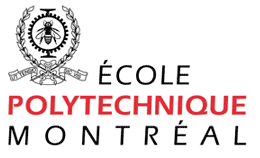About the Project
Acoustic cavitation is the growth and collapse of microbubbles under the influence of a sound field crossing a liquid. The high local temperatures (up to 10^4 K) and pressures (hundreds of atmospheres), combined with rapid cooling (above 1010 Ks-1), provide a unique environment to promote mechanical and chemical processes. For this reason ultrasound has recently found application in several industrial sectors including industrial cleaning, emulsification, material synthesis, and fermentation.
The cavitation bubbles can be characterized by the dynamics of their oscillations, the maximum temperatures and pressures reached when they collapse, as well as by the numbers of radicals generated. The present project focuses on the quantification of the mechanical and chemical effects in liquid-solid systems, where bubbles grow around small solid inclusions. Liquids will include water and different organic solvents while solids will include powders of different granulometry, with application in heterogeneous catalytic reactions.
Though fundamental, this research project has the potential to contribute significantly and rapidly to the advancement of knowledge in several technical areas such as: material synthesis, electrochemistry, environmental remediation, industrial cleaning, food technology, therapy (medical imaging), and drug delivery.
Fundamental understanding of the physical and chemical processes involved will be acquired through small-scale tests in controlled conditions. From these results, a model that correlates the physico-chemical properties of different cavitating systems with the collapse pressure, the volume of cavitation, the radius of the imploding bubbles and the cavitational yield will be developed.
At Polytechnique Montréal, the academic supervision team will include Prof. Etienne Robert (Mechanical Engineering Dept. – fluid mechanics, modeling) and Prof. Daria C. Boffito (Chemical Engineering; - sonochemistry, process intensification, and catalysis).
Description of position
One PhD position is available, with starting date in winter/spring 2018. Other graduate positions may become available in 2018. The research activities planned are:
1. Experimental characterisation of the cavitating systems using advanced diagnostic means: sonoluminescence, sonochemiluminescence, calorimetry, iodimetry, high- speed imaging and shockwave detection. This position requires aptitudes for laboratory work and a strong background in fluid mechanics, chemistry or physics.
2. Modeling of the acoustic cavitation characteristics of liquid-solid systems. Programing and simulation experience is a strong asset for this position.
Qualifications
The required background for these positions is a Master of Science (MSc or equivalent). Candidates with diplomas in mechanical, physical, chemical or material engineering will be preferred. Excellent communication skills in technical English (both oral and written) are essential. The selection process will be made on the basis of academic merit, language skills and publication record. The applicants must be strongly motivated for graduate studies and be able to work independently towards the objectives of the project.
Funding Notes
Individuals interested in joining the project should send:
1. Brief curriculum vitea along with their most recent academic grade transcripts;
2. An example of technical writing in English where the applicant is the main author
(paper, report or master thesis for example).
3. A list of publications (if applicable); one section for articles in international refereed journals and another for all the other communications.
4. A one-page letter explaining the expertise of the candidate and relevant contributions to research.
Applications should be sent by email to Prof. Etienne Robert: [Email Address Removed] and Prof. Daria C. Boffito: [Email Address Removed].
References
Incomplete or non-conform applications will not be considered. The applications received will be evaluated as they arrive, starting on October 1 2017, aiming for a project start for the winter or spring 2018 academic terms.
About Polytechnique Montréal
Founded in 1873, Polytechnique Montréal is one Canada's top engineering teaching and research institutions and first in Québec for the size of its student body and the scope of its research activities.

 Continue with Facebook
Continue with Facebook

